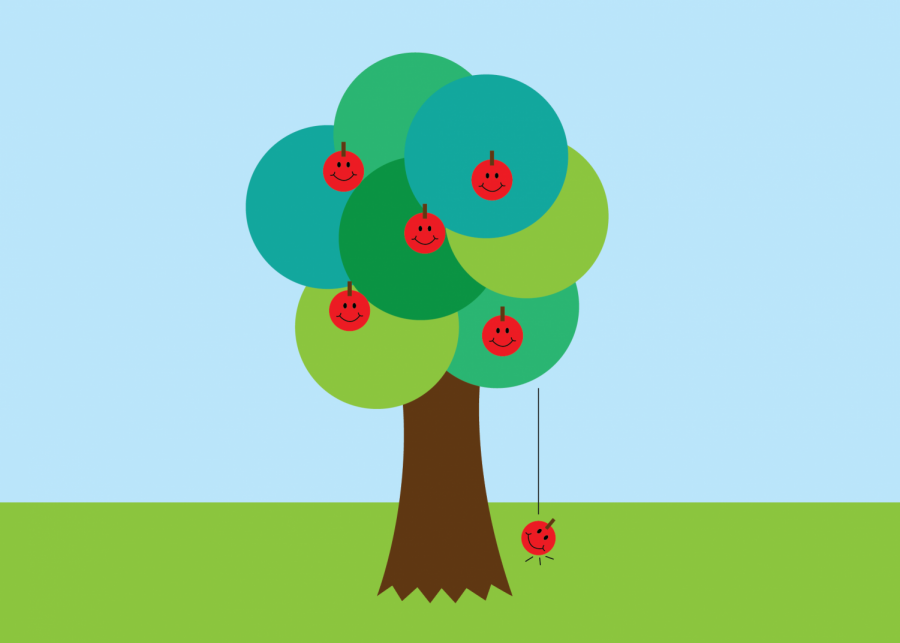Opinion | Parents aren’t perfect: Point out parenting flaws
Nov 20, 2019
Last weekend, I went to St. Louis. People kept asking me what I was doing there because, in all honesty, you don’t really go to St. Louis. You kind of just end up there.
My cousin ended up there about a year ago, and it’s driving distance from the University, so we decided to spend the weekend together. He picked me up on Friday night and thus began our adventures in the city.
Despite most of its attractions being similar to what is easily found on a much grander scale in Chicago, that weekend was one of the best ones I’ve had since coming to college. We got to catch up on a lot, and it was an amazing experience bonding over something I had no idea we had so much in common about: our parents.
My cousin is nine years older than me, so we’re not even in the same generation. While the media we consumed and the sidewalk games we played growing up differed, the amount of challenges we faced with our parents turned out to be strikingly similar.
It wasn’t so much in the nature of the problems we dealt with — in fact, they were almost opposite. We both had a lot to say about the way our parents shaped us. And the more we talked through it, the more we were able to realize two things.
Get The Daily Illini in your inbox!
One, there was so much wrong with some of their parenting techniques. And two, this was inevitable.
The mistakes they made were a byproduct of their attempts at correcting their own parents’ mistakes.
We all love our parents, and, let’s face it, are all turning into them anyway. But whether you are the child or the parent, it’s OK to recognize parenting flaws.
In fact, it is actually important to regularly practice this. Developmental researcher Dr. Kent Hoffman says that acknowledging shortcomings is the only way to move past them and grow healthy parental relationships.
It’s easy to fall into the trap of idolizing your parents and attributing all current identity problems on yourself. In an age where we are more self-critical than ever before, it is crucial to remember many factors had a hand in forming our identities.
Evaluating the state of your upbringing can help you understand current behaviors. A child who was helicopter-parented, for example, may lash out as soon as they are given the slightest bit of freedom. As the saying goes, “the tighter the leash, the farther they run.”
Children who were left to their own accord too often may internalize their childhood need for independence into adulthood and become overbearing caregivers, for fear that their children will have to deal with the same lack of parenting they experienced.
Evidently, there are multiple ways to screw something up as a parent. It seems overwhelming, but as long as check-ins are regular, the effects of errors are minimized.
Check-ins don’t have to just be introspective. As much as possible, it’s important to get a conversation going.
Parents should constantly be anticipating how their actions will be received by their children and how this aligns with their goal response. If there is a discrepancy, they should seek advice from their children. Children should be receptive to how their parents approach certain things, giving feedback when their behavior is potentially disruptive to their growth.
This is something children with siblings are used to doing. When it comes to a sibling receiving unfair treatment, children are more than vocal about the injustice they see.
It simply becomes a matter of doing the same vocalizing for our own treatment.
If it’s not possible to have a healthy and cohesive conversation with your parents, at least have that therapy session with someone you trust, like a sibling, cousin or friend. Simply being aware of the issues you had growing up can help you come to peace with the way things are now.
Depending on the difficulty of circumstances growing up, it may be a hard conversation to have. Being brutally honest, laughing things off and focusing on how to improve will help with coping with the stresses of childhood.
We can’t undo the mistakes our parents made, but we can focus on using them as seeds from which we will grow.
Tara is a freshman in LAS.






